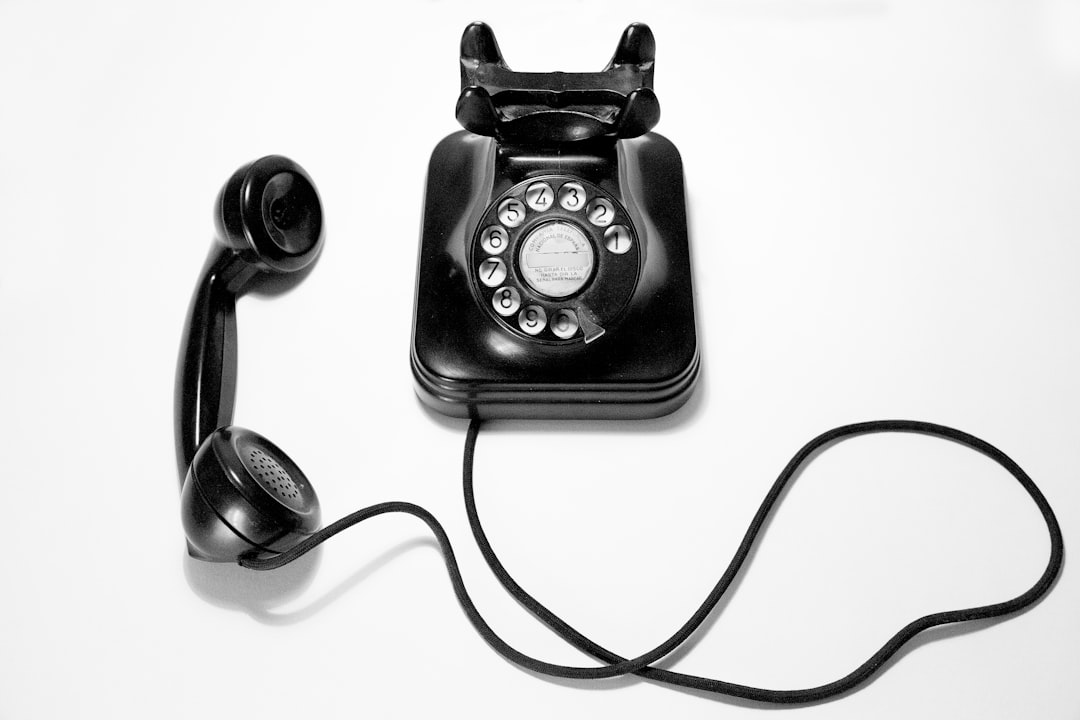Spam call law firms in Iowa have inundated residents with unwanted automated messages and robocalls, disrupting communication and causing frustration. New state laws target fraudulent calls but present challenges for legal firms relying on phone marketing. Firms are adapting by implementing stricter anti-spam measures, exploring personalized outreach, and adhering to consent-based communication guidelines. Iowans can combat spam by registering for Do Not Call lists, avoiding sharing personal info, and reporting suspicious calls. Local law firms lead efforts to reclaim control over communication channels through advanced technologies and legal action against spammers.
In recent years, the landscape of communication in Iowa has been significantly altered by a persistent and growing problem: spam calls. This article delves into the escalating issue, focusing on its impact across various sectors, particularly within the legal community. We explore new spam call laws affecting law firms and how these intrusions influence Iowans’ daily lives. Additionally, we provide practical tips for identification and avoidance, while also considering future solutions to combat this modern nuisance.
Spam Calls on the Rise in Iowa's Legal Sector

In recent years, the surge in spam calls has become a growing concern for residents across Iowa, particularly within the legal sector. As one of the state’s primary industries, law firms have been targeted by unwanted phone solicitations, affecting their communication strategies and client relationships. Spam call law firms in Iowa have led to increased frustration among legal professionals who must navigate through an overwhelming number of automated calls seeking new clients or promoting legal services.
This trend has prompted many law firms to implement stricter anti-spam measures to protect their reputations and maintain effective client engagement. With the advancement in technology, spam calls are becoming more sophisticated, making it challenging for traditional blocking methods to keep pace. As a result, Iowa’s legal community is exploring innovative solutions to curb this rising issue, ensuring that communication with potential clients remains legitimate and respectful.
New Spam Call Laws Affecting Law Firms

Iowa has witnessed a significant shift in its communication landscape due to new spam call laws, significantly impacting how law firms operate and connect with clients. These regulations aim to protect residents from unwanted and fraudulent calls, but they also present challenges for legal professionals who rely on phone communication as a primary marketing tool.
Law firms in Iowa now face stricter guidelines regarding automated voice messages and robocalls, leading many to adapt their strategies. They are exploring alternative methods to reach potential clients while adhering to the new spam call laws. This shift encourages more personalized outreach and emphasizes the importance of consent in the digital age, shaping a more responsible and effective communication approach for legal services in Iowa.
Impact of Spam Calls on Iowans' Daily Lives

Spam calls have become an increasingly prevalent and frustrating aspect of Iowans’ daily lives. With the rise of automated phone systems, many residents find themselves overwhelmed by unwanted marketing messages and robocalls from law firms and other businesses. These incessant calls can disrupt routines, cause stress, and even lead to safety concerns, especially for older adults or those living alone. The constant need to screen or block unknown numbers has altered communication patterns, making it harder for Iowans to connect with friends, family, and important services.
Iowa’s unique blend of rural communities and bustling cities makes it a target for spam call developers. As technology advances, so do the tactics used by spammers, who adapt to loopholes in the state’s spam call law firms regulations. This constant cat-and-mouse game leaves Iowans feeling vulnerable and frustrated, prompting many to advocate for stricter measures to protect their privacy and peace of mind.
How to Identify and Avoid Spam Calls Legally

In Iowa, identifying and avoiding spam calls is both a legal requirement and a common courtesy in today’s digital era. Spam call law firms have been known to employ various tactics, from automated dialers to pre-recorded messages, making it essential for residents to stay informed. One key way to identify a spam call is by checking the caller ID, which often displays unknown or restricted numbers. Additionally, if the call includes a prerecorded message or demands immediate action, it’s likely a spam attempt.
To avoid such calls, Iowans can take several precautions. First, consider registering for Do Not Call lists at both the state and national levels. Second, never provide personal or financial information over the phone unless you’ve initiated the call and are certain of the recipient’s identity. Lastly, report suspicious calls to local law enforcement or regulatory bodies to help combat spamming activities in Iowa.
The Future of Communication: Spam Call Solutions

As spam calls continue to plague Iowans, both individuals and businesses, there’s a growing need for effective solutions. This isn’t just about consumer protection; it’s about reshaping the state’s communication landscape to prioritize genuine interactions over intrusive, unwanted ones. Law firms in Iowa are at the forefront of this shift, leveraging technology and legal expertise to combat spam calls.
Innovative strategies include implementing stricter call blocking technologies, adopting robust do-not-call registries, and pursuing legal actions against persistent spammers. By combining these approaches, Iowans can reclaim control over their communication channels. This evolution ensures that future interactions, both personal and professional, are based on consent and mutual respect, fostering a clearer, less cluttered communication environment in the Hawkeye State.






